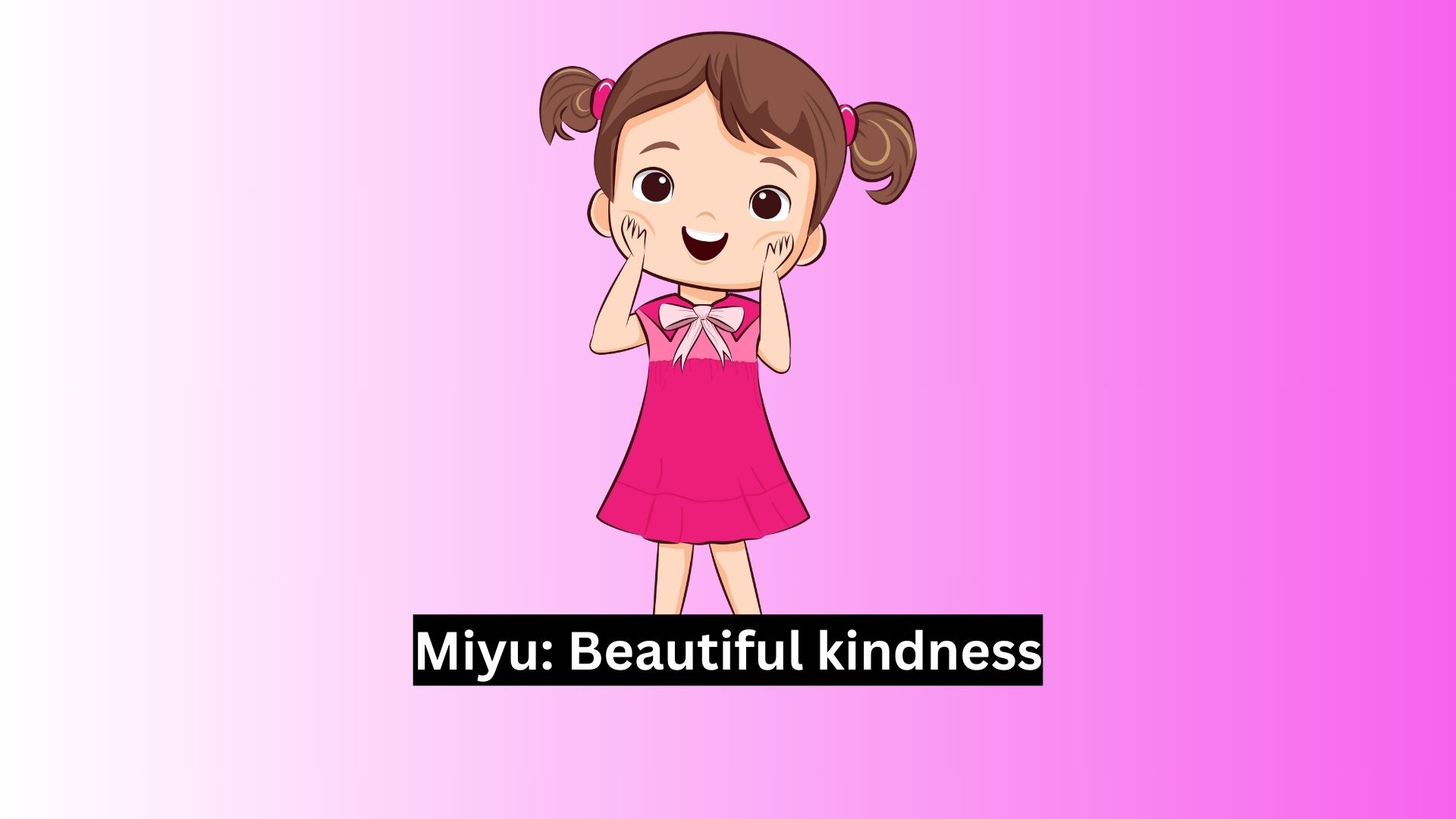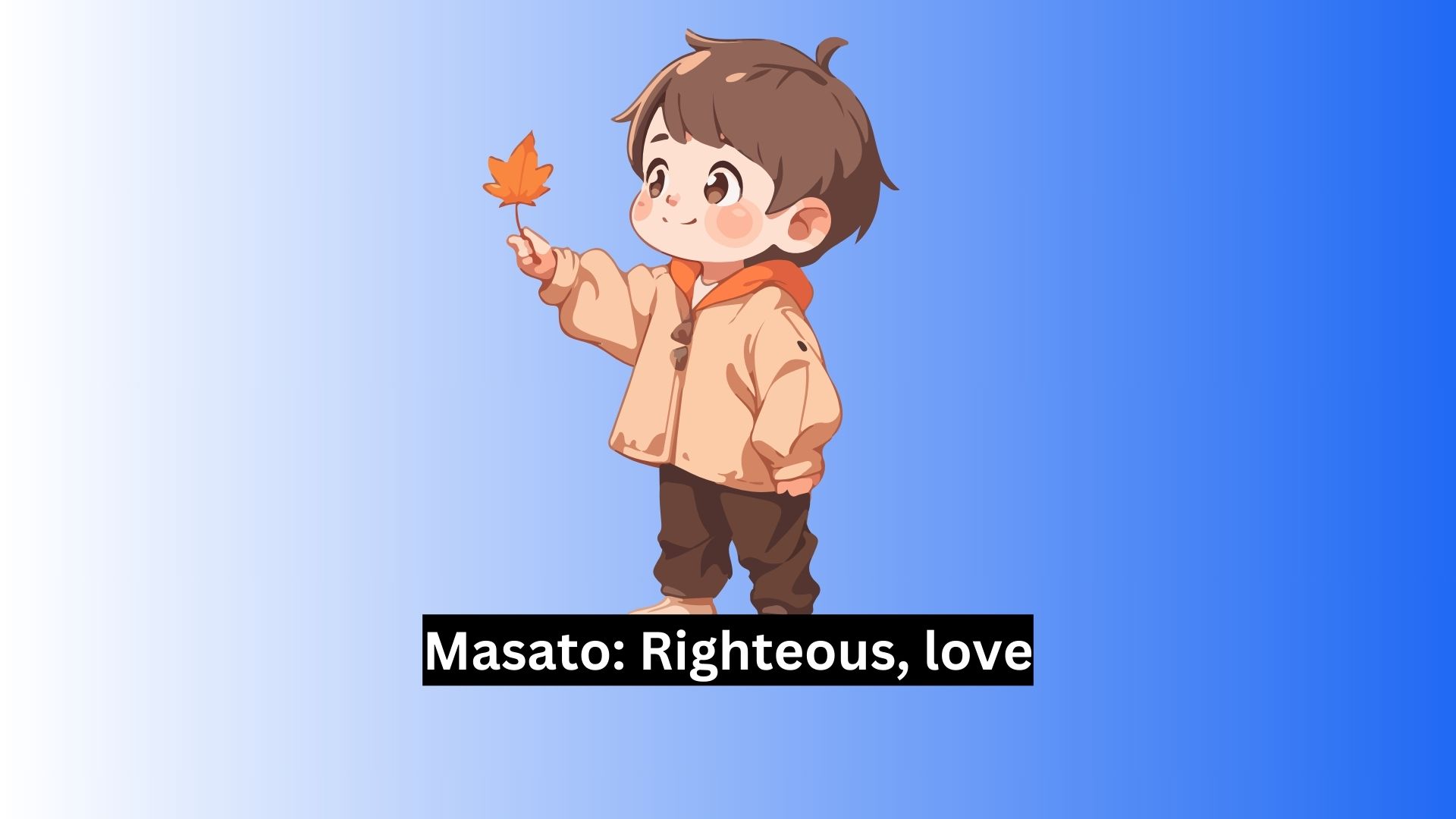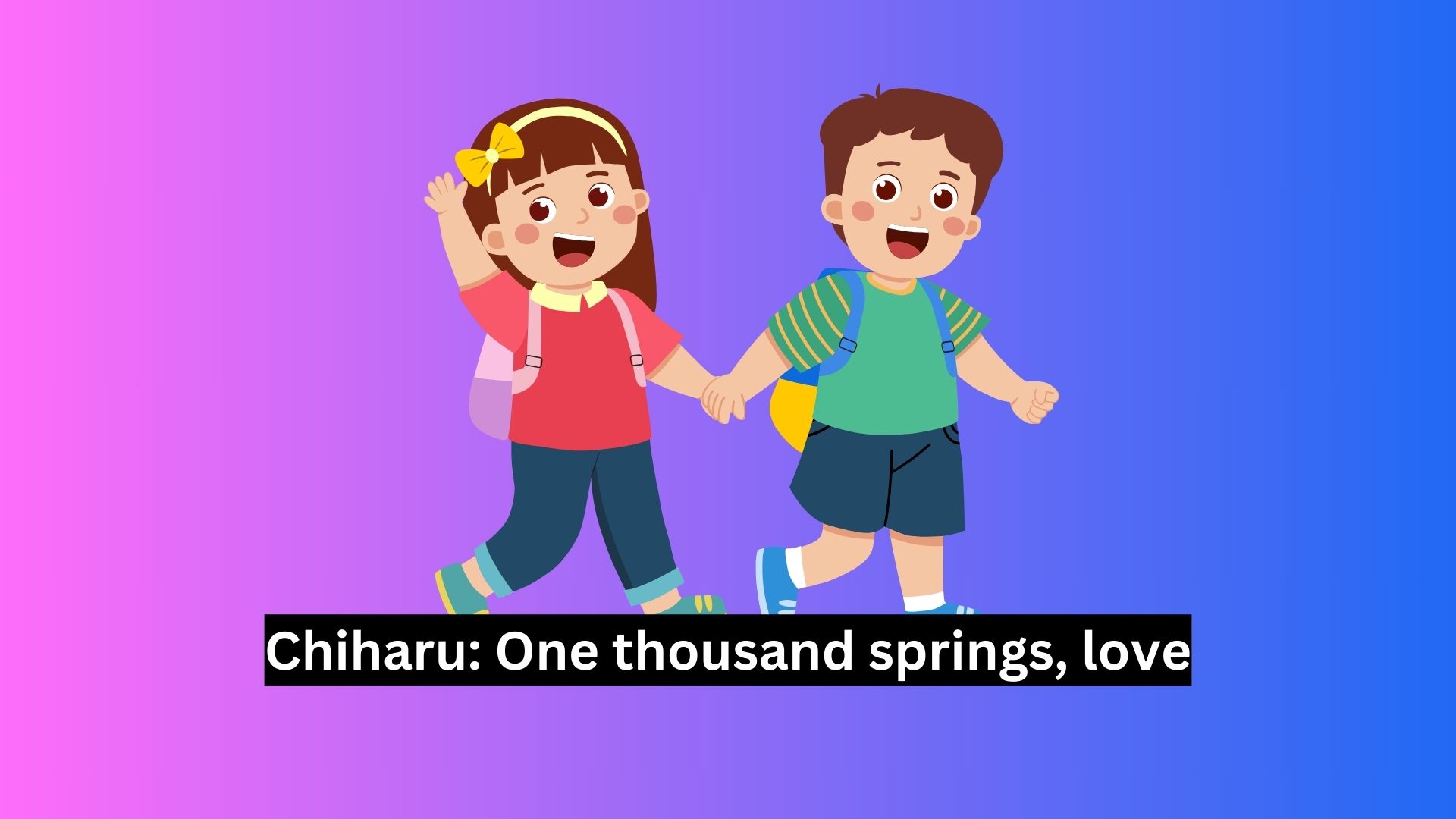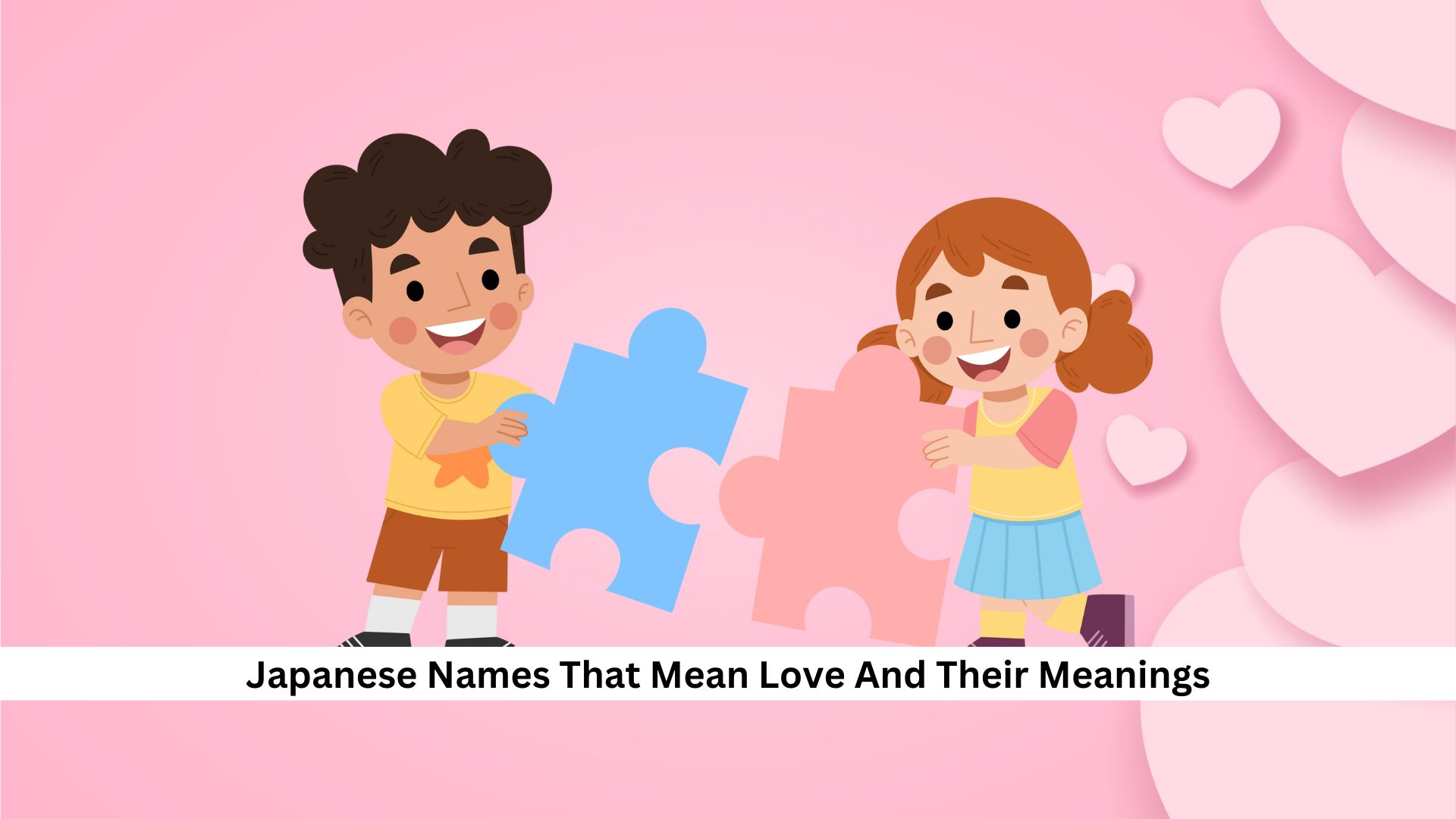Exploring over 100+ Japanese names that mean love is really interesting. These names show how much value is placed on love in Japanese culture. Each name has its roots in language and tells us about what people value and hope for. Learning about these names helps us see into the heart of Japanese traditions and how individuals see themselves. As we go through these names, it makes us think about how these meanings affect the names people choose today and the stories behind them.
Japanese Names That Mean Love
Girl Names
Exploring Japanese girl names related to love shows how deeply culture influences personal identity. Take the name Ai, which means love. It represents pure, unconditional affection. Then there’s Aiko, meaning ‘child of love.’ It expresses a hope that the child will live surrounded by love and share that love with others. These names do more than just identify; they inspire and guide life choices.
- Aimi (愛美) – “Love, beauty,” combining “ai” meaning love, and “mi” meaning beauty, symbolizing love and beauty together.
- Ai (愛) – “Love,” directly means love, representing affection and care.
- Aiko (愛子) – “Little love,” combining “ai” meaning love, and “ko” meaning little, symbolizing a small, cherished love.
- Akemi (明美) – “Bright beauty,” combining “ake” meaning bright, and “mi” meaning beauty, with an underlying sense of love for beauty.
- Amaya (雨夜) – “Night rain, love,” combining the poetic “night rain” with the meaning of love, symbolizing love in a gentle, calming way.
- Airi (愛莉) – “Love, Jasmine,” combining “ai” meaning love, and “ri” meaning jasmine, symbolizing love associated with the fragrant flower.
- Asuka (明日香) – “Tomorrow fragrance,” combining the forward-looking “tomorrow” with a sense of fragrant love.

- Ayaka (彩花) – “Colorful flower,” with “aya” meaning colorful and “ka” meaning flower, symbolizing a love for vibrant beauty.
- Ayame (菖蒲) – “Iris flower,” representing the love for the elegant and colorful iris flower.
- Chika (千花) – “Scattered flowers,” combining “chi” meaning scattered, and “ka” meaning flowers, symbolizing love spread across many blooms.
- Eri (恵里) – “Blessed prize,” combining “e” meaning blessed, and “ri” meaning prize, symbolizing love as a precious gift.
- Hanae (花恵) – “Flower blessing,” combining “hana” meaning flower, and “e” meaning blessing, symbolizing love as a floral blessing.
- Haruka (遥香) – “Faraway love,” combining “haru” meaning faraway, and “ka” meaning love, symbolizing a distant but cherished love.
- Hikari (光) – “Light, love,” combining “hikari” meaning light with an inherent sense of love, symbolizing love as a guiding light.
- Hina (陽菜) – “Sun, love,” combining “hi” meaning sun, and “na” meaning love, symbolizing love as warm and life-giving as the sun.
- Kaori (香織) – “Fragrance, love,” combining “kao” meaning fragrance with an inherent sense of love, symbolizing love as a sweet scent.
- Kiyomi (清美) – “Pure beauty,” with “kiyo” meaning pure and “mi” meaning beauty, symbolizing a love for purity and beauty.
- Mai (舞) – “Dance, love,” combining “mai” meaning dance with an inherent sense of love, symbolizing love expressed through graceful movement.
- Manami (愛美) – “Beautiful love,” combining “mana” meaning beautiful and “mi” meaning love, symbolizing a beautiful expression of love.
- Mari (真理) – “Truth, love,” combining “ma” meaning truth and “ri” meaning love, symbolizing love rooted in truth.
- Mei (芽生) – “Sprout, love,” combining “mei” meaning sprout with an inherent sense of love, symbolizing love growing like a new plant.
- Megumi (恵美) – “Blessing, love,” combining “megu” meaning blessing with an inherent sense of love, symbolizing love as a divine blessing.
- Mizuki (美月) – “Beautiful moon,” combining “mizu” meaning beautiful, and “ki” meaning moon, with an underlying sense of love for serene beauty.
- Miyu (美優) – “Beautiful kindness,” combining “mi” meaning beautiful, and “yu” meaning kindness, symbolizing love expressed through kindness.

- Nana (七) – “Seven, love,” with “nana” meaning seven and an inherent sense of love, symbolizing love as a perfect, complete number.
- Nanami (七海) – “Seven seas, love,” combining “nana” meaning seven, and “mi” meaning seas, symbolizing love as vast and encompassing as the seas.
- Rina (梨奈) – “Jasmine, love,” combining “ri” meaning jasmine, and an inherent sense of love, symbolizing a fragrant and delicate love.
- Saki (咲) – “Blossom, love,” combining “sa” meaning blossom and an inherent sense of love, symbolizing love in full bloom.
- Sakura (桜) – “Cherry blossom,” directly means cherry blossom, symbolizing the fleeting yet beautiful nature of love.
- Satomi (里美) – “Beautiful wisdom,” combining “sato” meaning beautiful and “mi” meaning wisdom, symbolizing a love for wisdom and beauty.
- Sayuri (小百合) – “Little Lily, love,” combining “sa” meaning little, “yuri” meaning lily, symbolizing a delicate and cherished love.
- Shiori (詩織) – “Poem, love,” combining “shi” meaning poem and an inherent sense of love, symbolizing love expressed through beautiful words.
- Sumire (菫) – “Violet, love,” combining “sumi” meaning violet and an inherent sense of love, symbolizing a gentle and modest love.
- Yuka (優花) – “Gentle flower,” combining “yu” meaning gentle, and “ka” meaning flower, symbolizing a soft and tender love.
- Yumiko (由美子) – “Child of beauty,” combining “yumi” meaning beauty, and “ko” meaning child, symbolizing love for a beautiful child.
- Yuriko (百合子) – “Lily child,” combining “yuri” meaning lily, and “ko” meaning child, symbolizing a love for a pure and delicate child.
Boy Names
Just as girl names deeply express love in Japanese culture, boy names do too. Take Aito, which means ‘love that lifts and elevates.’ It’s about inspiring love that uplifts the spirit. Then there’s Ren, standing for romantic love, mixing purity with deep feelings. Yui represents gentle love, showing strength in emotional connections. Each name holds a special meaning, aiming to fill a life with love and meaningful relationships.
- Aito (愛人) – “Affectionate person,” combining “ai” meaning affection and “to” meaning person, symbolizing a loving individual.
- Arata (新) – “Fresh, love,” symbolizing a fresh and new love.
- Haruto (陽翔) – “Sun, love,” combining “haru” meaning sun, and an inherent sense of love, symbolizing love as warm as the sun.
- Hiroto (大翔) – “Great flying, love,” combining “hiro” meaning great, and “to” meaning flying, with an underlying sense of love.
- Isamu (勇) – “Courage, love,” combining “isa” meaning courage and an inherent sense of love, symbolizing a brave love.
- Kazuki (和希) – “Harmony, hope, love,” combining “kazu” meaning harmony, and “ki” meaning hope, with an inherent sense of love.
- Kazuya (和也) – “Peaceful one, love,” combining “kazu” meaning peace, and “ya” meaning one, symbolizing a peaceful and loving person.
- Kenzo (賢三) – “Wise, love,” combining “ken” meaning wise and an inherent sense of love.
- Koji (小次) – “Little one, love,” combining “ko” meaning little, and “ji” meaning one, symbolizing a small, cherished love.
- Koichi (光一) – “Light, love,” combining “ko” meaning light, and “ichi” meaning one, symbolizing a bright and loving individual.
- Masato (正人) – “Righteous, love,” combining “masa” meaning righteous, and “to” meaning love.

- Nao (直) – “Honest, love,” symbolizing an honest and loving person.
- Ren (蓮) – “Lotus, love,” combining “ren” meaning lotus with an inherent sense of love, symbolizing a pure and delicate love.
- Ryo (涼) – “Refreshing, love,” combining “ryo” meaning refreshing with an inherent sense of love.
- Satoshi (聡) – “Wise, love,” symbolizing a wise and loving individual.
- Shin (真) – “True, love,” combining “shin” meaning true with an inherent sense of love.
- Shiro (四郎) – “Fourth son, love,” combining “shi” meaning four, and “ro” meaning son, with an underlying sense of love.
- Sho (翔) – “Fly, soar, love,” combining “sho” meaning fly or soar with an inherent sense of love.
- Shota (翔太) – “Prosper, love,” combining “sho” meaning prosper and “ta” meaning love.
- Taichi (太一) – “Big one, love,” combining “tai” meaning big, and “chi” meaning one, symbolizing a large, encompassing love.
- Takumi (巧) – “Artisan, love,” combining “taku” meaning artisan with an inherent sense of love.
- Taro (太郎) – “Big son, love,” combining “ta” meaning big, and “ro” meaning son, symbolizing a beloved firstborn.
- Tatsuya (達也) – “Accomplished one, love,” combining “tatsu” meaning accomplished with an inherent sense of love.

- Tomoya (智也) – “Wise one, love,” combining “tomo” meaning wise and “ya” meaning one, symbolizing a wise and loving person.
- Yasu (安) – “Calm, love,” symbolizing a calm and loving individual.
- Yori (頼) – “Trust, love,” combining “yo” meaning trust with an inherent sense of love.
- Yuji (勇二) – “Courageous second son, love,” combining “yu” meaning courageous and “ji” meaning second son.
- Daiki (大輝) – “Great nobility, great shine,” combining “dai” meaning great, and “ki” meaning shine, symbolizing a person of noble character and bright presence.
- Eiji (栄治) – “Prosperous ruler,” combining “ei” meaning prosperous, and “ji” meaning ruler.
- Hiroshi (寛) – “Generous, tolerant,” symbolizing a person known for their generosity and tolerance.
- Jiro (次郎) – “Second son,” symbolizing the second-born son in a family.
- Kenji (賢二) – “Intelligent second son, strong and vigorous,” combining “ken” meaning intelligent and “ji” meaning second son.
- Makoto (誠) – “Sincerity, truth,” symbolizing a person known for their honesty and integrity.
- Naoki (直樹) – “Honest tree,” combining “nao” meaning honest, and “ki” meaning tree, symbolizing a person with strong, truthful roots.
- Osamu (治) – “Disciplined, studious,” symbolizing a person known for their discipline and dedication to study.
- Raiden (雷電) – “Thunder and lightning,” symbolizing a powerful and dynamic presence.
- Seiji (誠司) – “Refined ruler,” combining “sei” meaning refined and “ji” meaning ruler.
- Takashi (隆) – “Noble, prosperous,” symbolizing a person known for their nobility and success.

- Umi (海) – “Sea, ocean,” symbolizing a person with a vast and deep character.
- Wataru (渡) – “Navigate, cross over,” symbolizing a person known for their ability to navigate through life’s challenges.
- Yasuo (安雄) – “Peaceful man,” symbolizing a person known for their peaceful and calming presence.
- Zenko (善子) – “Virtuous, good child,” combining “zen” meaning virtuous, and “ko” meaning child.
- Akio (明夫) – “Bright man, hero, manly,” symbolizing a person known for their brightness, heroism, and strong character.
- Botan (牡丹) – “Peony flower,” symbolizing a person known for their beauty and elegance.
- Chikara (力) – “Strength, power,” symbolizing a person known for their strength and resilience.
- Daisuke (大輔) – “Great helper,” combining “dai” meaning great, and “suke” meaning helper.
- Eiichi (栄一) – “Prosperous one,” symbolizing a person known for their prosperity and success.
Also Read: 115+ Beautiful Japanese Names Meaning Moon
Unisex Names
Many Japanese unisex names carry deep meanings about love, and they’re great for anyone. For example, ‘Akira’ means bright and clear, hinting at a love that lights up everything around. Lastly, ‘Yuki’ means happiness or snow, capturing the purity and joy of love. These names aren’t just beautiful; they say a lot about what we hope for in life and love.
- Akira (明) – “Bright, love,” combining “akira” meaning bright with an inherent sense of love, symbolizing a radiant and loving personality.
- Aoi (葵) – “Hollyhock, love,” combining “aoi” meaning hollyhock with an inherent sense of love, symbolizing love for the beautiful flower.
- Chiharu (千春) – “One thousand springs, love,” combining “chi” meaning thousand, and “haru” meaning springs, symbolizing a vast and enduring love.

- Haru (春) – “Spring, love,” directly means spring and symbolizes a fresh and blossoming love.
- Hikaru (光) – “Radiance, love,” combining “hikaru” meaning radiance with an inherent sense of love, symbolizing a bright and loving presence.
- Kaede (楓) – “Maple, love,” combining “kaede” meaning maple with an inherent sense of love, symbolizing a love for nature’s beauty.
- Kairi (海里) – “Ocean village, love,” combining “kai” meaning ocean, and “ri” meaning village, symbolizing a love for serene and peaceful places.
- Kiyoshi (清) – “Pure, love,” combining “kiyoshi” meaning pure with an inherent sense of love, symbolizing a pure and loving heart.
- Michi (道) – “Pathway, love,” combining “michi” meaning pathway with an inherent sense of love, symbolizing a loving journey.
- Minori (実) – “Truth, love,” combining “mi” meaning truth, and “nori” meaning love, symbolizing an honest and loving person.
- Natsu (夏) – “Summer, love,” directly means summer and symbolizes a warm and vibrant love.
- Nozomi (望) – “Hope, love,” combining “nozomi” meaning hope with an inherent sense of love, symbolizing a hopeful and loving nature.
- Rei (霊) – “Spirit, love,” combining “rei” meaning spirit with an inherent sense of love, symbolizing a loving and spiritual person.
- Riku (陸) – “Land, love,” combining “riku” meaning land with an inherent sense of love, symbolizing a grounded and loving individual.
- Sora (空) – “Sky, love,” combining “sora” meaning sky with an inherent sense of love, symbolizing a love as vast as the sky.
- Tsubasa (翼) – “Wings, love,” combining “tsubasa” meaning wings with an inherent sense of love, symbolizing a free and loving spirit.
- Yuki (雪) – “Snow, love,” directly means snow and symbolizes pure and gentle love.
- Yuu (優) – “Gentle, love,” combining “yuu” meaning gentle with an inherent sense of love, symbolizing a kind and loving person.
- Yuzuki (優月) – “Gentle moon, love,” combining “yu” meaning gentle, and “zuki” meaning moon, symbolizing a calm and loving presence like the moon.
Japanese Last Names That Mean Love
Japanese last names that mean love usually include characters that stand for deep affection and close family ties. These names mean more than just who someone is; they carry important emotional and cultural meanings. They show what people value and hope for. In Japanese culture, these names are valued because they express a deep respect and desire for love. They are a key part of who someone is and the community they belong to.
Japanese names that mean love really show us a lot about their culture and the importance of emotions. Names like Ai and Yuki, or last names like Aikawa and Aizawa, are all about different aspects of love. These names do more than just sound nice. They reflect deep values and connect people. By using such names, we see how crucial love is in personal connections and in bringing communities together. It’s a way of celebrating how essential love is to all of us, through the simple act of naming. Keep visiting The Jeep Diva for more such articles.

Fahmea Shorok is a well-traveled writer who focuses on entertainment journalism. Her work reflects her journeys and showcases her flexible writing style. She explores local art scenes wherever she goes, giving her readers a close look at the entertainment found around the world in theaters, movies, and art galleries.

